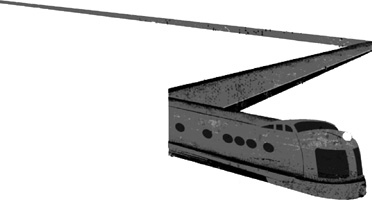

Toño wants to teach me all there is about the United States in one gulp, fast fast. His mustache jumps up and down like a being of its own, as he explains to me Los Angeles things.
The next day we visit a fish market and buy—something. Toño lifts the thing high and, grinning gleefully, slops it in my direction saying, “Here is dinner, little brother.” Even when he is teasing me, I feel the sound of our home language enfold us like a mother’s warm arms.
With fright I look at this mystery Toño holds. Can this be a sign of some kind? Who would believe that God made such a creature? (Who would believe He made the animals who branded me?)
“¡Ay Dios!” I shout and jump back, nearly falling to the ground. “I cannot eat that!” The words just spurt themselves out. “What is it?”
“A pulpo. Oc-to-pus.”
Some limp and dangling things look like slices of our bath mat.
“I cannot eat a bath-mat animal,” I insist.
“You will love it, little brother,” says Toño. “I have learned to cook this dish from my girlfriend.”
Girlfriend! First an oc-to-pus, then a novia. Which is worse?
I am not convinced that Cejas would want this being on her magical camera, but I decide finally that she would be delighted. Click. The creepy creature is forever captured.
On the way back from the fish place, near Toño’s home I see a viejito, an old man, on the porch of a tiny house, sitting in a wooden chair. He is taking in the scene, I think, but without seeming to.
“Who is that?” I ask warily, but not pointing.
“A neighbor. A Japan man. He lives alone. I do not know him.”
Toño does not know him. I gape. “How can you not know your neighbor?”
“This is Los Angeles.”
Poor guy, I think. He might wait forever for somebody to talk to him.
I look in the man’s direction. In a not-staring way, he looks at me. Suddenly I shudder. My mind swings from Poor guy to What if he is a bad one? What if he turns us in?
At home Toño rinses our mysterious meal, grinning grinning with wicked glee all the while.
Maybe I laugh at this thing that at first gave me a big fright. If I laugh I do not recognize that good sound. It has been a long time. . . .
“Look here, little brother,” Toño says. “These are ten-ta-cles.” He stretches the word out, holding up each one as he does. “Now you say ‘ten-ta-cle.’”
“Ten-ta-quel.”
“Now,” like a stiff school teacher Toño says, “we count.”
I wait.
“Hold up a tentacle and say ‘one.’ One is the same as ‘uno.’”
I do not wish to touch the bath-mat animal, but I get used to it. This octopus is so ugly, it is a bit simpático. From one, on we go, for two, three, and the rest. These tentacles they are rubbery and sometimes slip out of my hand.
“So how many tentacles?” asks Toño.
“¿Diez?” I mumble, because I lost count.
“Eight,” says my teacher in disgust. “Again.”
Tentacle by tentacle, in this way I begin to learn English.